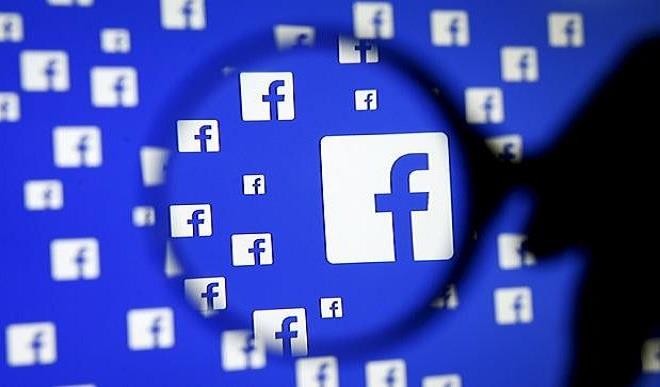Libra, Calibra: Can Facebook be trusted with a cryptocurrency? – The Basics
Forget Bitcoin – even though it was trading at almost $11,000 to a bitcoin two days ago! Facebook says it will soon be Libra, a cryptocurrency the company is planning to launch that will transform global economy for the banked urban person and the unbanked village man alike! The currency’s tentative launch date is mid-2020. […]

Forget Bitcoin – even though it was trading at almost $11,000 to a bitcoin two days ago! Facebook says it will soon be Libra, a cryptocurrency the company is planning to launch that will transform global economy for the banked urban person and the unbanked village man alike! The currency’s tentative launch date is mid-2020. Calibra is the name Facebook gives to a subsidiary company that is being launched to develop products and services around Libra.
You will be able to send Libra inside of Facebook Messenger and WhatsApp as an intermediary for transferring traditional currencies like the dollar or Naira. Moreover, Facebook has the goal of having Libra accepted as a form of payment for goods that you purchase. Other devices will also be built on top of Libra’s network, which, of course, will be based on some blockchain technology.
You will also be able to buy things or send money to people with nearly zero fees, unlike credit or bankcards, which often charge you a fee. Moreover, you can use assumed names, not your real names, to buy or exchange your Libra for regular currencies online or at local exchange points like grocery stores. You can spend Libra using third-party wallet apps or Facebook’s own Calibra Wallet, which will be built into WhatsApp, Messenger and its own app. (Obviously, pseudonymous transactions are a law enforcer’s nightmare; but what can one do?)
In Libra, Facebook intends to develop a global digital currency that promotes financial inclusion for the unbanked. The platform will enable a Nigerian in the USA, for example, to send money fast and easily to her family back home, without paying Western Union or bank fees for money transfer. Facebook says a student would be able to pay his rent as easily as he can buy a cup of coffee.
According to a World Bank publication on 23 April 2018, Nigerians living abroad sent home $22 billion in 2017. (The top remittance recipients were India with $69 billion, followed by China ($64 billion), the Philippines ($33 billion), Mexico ($31 billion), Nigeria ($22 billion), and Egypt ($20 billion).) The global average cost of sending $200 was 7.1 percent in the first quarter of 2018, with the sub-Saharan Africa remaining the most expensive place to send money to, with an average cost being 9.4 percent. Facebook’s Libra promises to reduce the cost of sending money to almost zero.
In a nutshell, you can cash Libra in a local currency (Naira, dollar), receive Libra from others, spend it as you spend Naira or dollars, even pseudonymously, without incurring significant transaction fees, and cash it out whenever you want.
Of course, Facebook has to differentiate Libra from other cryptocurrencies like Bitcoin or Ethereum, to appeal to people. To do this the company is studying the weaknesses of existing cryptos. Josh Constine of Techcrunch.com, on 18 June 2019, points out some of the challenges with existing Internet monies: “Yet existing cryptocurrencies like Bitcoin and Ethereum weren’t properly engineered to scale to be a medium of exchange. Their unanchored price was susceptible to huge and unpredictable swings, making it tough for merchants to accept as payment. And cryptocurrencies miss out on much of their potential beyond speculation unless there are enough places that will take them instead of dollars and the experience of buying and spending them is easy enough for a mainstream audience.”
Constine thinks Libra has a chance: “But with Facebook’s relationship with 7 million advertisers and 90 million small businesses plus its user experience prowess, it was well-poised to tackle this juggernaut of a problem. Now Facebook wants to make Libra the evolution of PayPal. It’s hoping Libra will become simpler to set up, more ubiquitous as a payment method, more efficient with fewer fees, more accessible to the unbanked, more flexible.”
In terms of governance, Constine says “Facebook won’t fully control Libra, but instead get just a single vote in its governance like other founding members of the Libra Association, including Visa, Uber and Andreessen Horowitz, which have invested at least $10 million each into the project’s operations. The association will promote the open-sourced Libra Blockchain and developer platform with its own Move programming language, plus sign up businesses to accept Libra for payment and even give customers discounts or rewards.”
The US law makers and enforcers are concerned about Libra, because of the believe that “Facebook is already too big and too powerful, and it has used that power to exploit users’ data without protecting their privacy, and we cannot allow Facebook to run a risky new cryptocurrency out of a Swiss bank account without oversight.” The company’s troubled past, in terms of the security of users’ data, is also an issue for the law makers.
Perceptions of Facebook’s ability to pull off Libra, particularly in light of the company’s dismal record of maintaining users’ data, are certainly issues to contend with, as is the ability of the company to overcome technical hurdles and properly differentiate the service.
